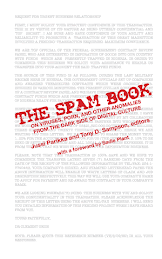Well, in the midst of ambivalent feelings, a quick look at Butler's talk. Focusing on Mitchell's 1974 classic Psychoanalysis and Feminism, Butler was able to carve out something interesting in terms of psychoanalysis -- something that I would label "against the grain" as a Darwinization of psychoanalysis and some notions apparent in some classical interpretations of the structures of the psyche. This Darwinisation refers here mostly to the way Butler insisted on the radical temporality of the notions that are at the centre of psychoanalysis, and that as the key way to keep it lively as a mode of social diagnostics and critique. I agree, wholeheartedly.
The consolidation of sexual difference and other notions that have functioned mostly to stabilize the plethora of practices that are in a way "hidden" under such generalizing notions as "heterosexual" or "homosexual" has happened through a suggestion of the universality of the structures -- a critique that Deleuze and Guattari among others raised in the 1970s already. They demanded a careful look at concrete practices and relations through which desire finds its ways -- a focus that was later referred to as "assemblages" in Mille Plateaux. And funnily enough, there was much of that spirit of "assembling" present when Butler referred to the actual mess of identifications and misidentifications, placements and misplacements of desire in the variety of kinship relations that are ever more present. Being a heterosexual does not really say much about the ways we desire, Butler argued, and indeed, the modes and objects of desire are much more fluctuating. Hence, the sociological fact of increase of for example gay couples does not automatically give us concrete information about the modes and practices of desire and they relate to the heteronormative.
What Lacanian system missed was the possibility of change and which was still present with Freud through the notion of superego: the level of transmission, passing on. It is through the double-nature of the social that we should understood both through the function of transmission of cultural relations and the forward facing nature of potentialisation (not a word I believe she used though). In terms of law, this means that law is an event; it takes place only through its instances instead of the dual ontology of "law AND its transmission". If law is only through its instances, it also allows the realization that those actualities can be there to change law. Same goes then for drives; drives are not a stable "archive" of possible reactions, but immanent to the instances in which they take place. This idea has some good ontological and methodological implications.
In such a context, Butler seems to catch quite well a key Marxist idea now transposed into the crucial task of rethinking sexual difference not only as the mode of stabilization of desire into a binary system but a radicalisation of the notion of difference; I am here probably reading this way too much in the direction e.g. Rosi Braidotti sees the issue but nonetheless, its a matter of temporalisation; how we need to keep abreast of the various temporalities storming in the psyche. Some of the references to fluidity and the sea that Butler used should hence be continued to take into account the layering of temporal currents (in the manner that Michel Serres loves to talk about time). So even if we are born into such relations that seem determining our position, there is the potentiality of change especially if we understood those relations not as stemming from an Archive of Law that is itself unchanging but a mode of creation immanent to the cultural expressions. This again is a further transposition of what Butler said but I am wanting to read this stuff in terms of what I have been thinking.
So, instead of Vivaldi, a bit of 1960s "times they are a-changing" would have been more apt theme music as Milla suggested.








No comments:
Post a Comment